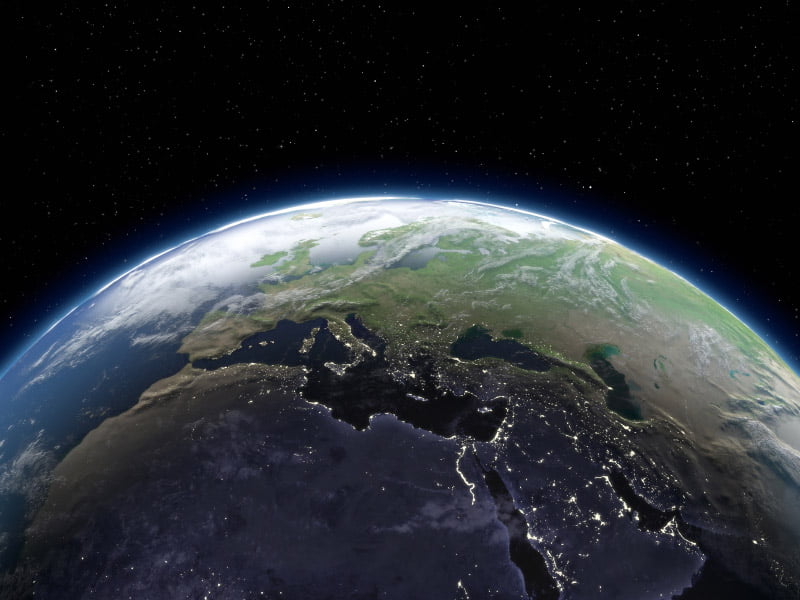At the end of the 19th Century, Australia had the best living standards in the world, having enjoyed decades of unprecedented economic growth. It was a magnet to migrants, who were attracted as much by the nation’s wealth as to its openness to new ideas.
But somehow the nation lost its way. Its doors were increasingly pulled shut, and its egalitarian acceptance of the outsider became a struggle – and for the next 50 years, the economy became one of the most sluggish around the world.
As the Australia of today racks up a 24th consecutive year of growth, you have to wonder whether there are lessons to be learned from history. What could the colonial experience of our late 19th century kin possibly tell us about our future?

Author George Megalogenis will tell you that you don’t have to look too hard at the evidence to see very distinct and real parallels in circumstance. Megalogenis’ latest book ‘Australia’s Second Chance: What history tells us about our future’ arrives at a most fascinating time in the Australian story.
We are among the world’s richest nations and we are again a magnet for the people of the world, attracting smarter and better qualified migrants than ever.
But the mining boom is off, and the Australia’s ‘traditional’ industries are not going to provide the platform for future economic growth. The whiff of uncertainty in the air is real.
This is where Megalogenis does his best work, washing social context against economic trends. There are some real insights to be had here. Especially when you add to this mix the elevation of Malcolm Turnbull to Prime Minister.
Suddenly everyone is talking about ‘the future’ and ‘embracing change’ and innovation and disruption and all that great stuff.
Of course, George is as insightful as ever, especially when talking about the influence and impact of Australia’s immigrants. And this is where he says our current policy makers need to be especially careful.
Australians must “re-dedicate itself” to egalitarianism if it is to successfully manage its way through its current transformation. That means investing in education, to make sure that the local population does not get ‘left behind’ in this global rush to embrace digital opportunities.
If Australia’s great strength is its openness and its cohesion, then you’d be hoping that Australia’s Second Chance is well read.
I spoke to Megalogenis last week, and will publish a transcript of a fascinating interview in the coming days. But I will highlight here some of the thinking on migration.
Because when we talk about filling the skills gap that exists in our economy and in our education system as it is currently structured, we will be drawing on very large numbers of industry skills from elsewhere.
This is not so different in raw terms. Australia has accepted – and actively sought – waves of skilled migrants over our history, and they have broadly been welcomed and have successfully added to great value to the country.
The challenge now is that our current migrants are the best qualified ever, and they are arriving in greater numbers. And to fuel these so-called ‘jobs of the future’ that our politicians talk so freely about, we will almost certainly need to proactively seek more of this talent.
Megalogenis talks of the continuing wave these highly qualified migrants as both a measure of Australia’s success – and the attractiveness of our society – and as a large potential challenge for policy-makers.
For the first time our migrants are better qualified (and potentially better paid) than our locals. And this is where our policy-makers need to be careful in developing strategies for maintaining the social cohesion that marks Australia as one of the most successful of immigrant nations.
And then there is the issue of where these migrants come from. Increasingly, we source our skills from Asia. That is the reality. The issue of cohesion is more complicated than a race-based resentment (in fact Megalogenis believes the innate openness of Australians to outsiders is one of our great strengths). It has more to do with skills, and jobs and prospects.
While the great wave of post-World War II migrants from southern Europe and the former Yugoslavia arrived at a time of full employment. While these immigrants from non-english speaking backgrounds often took jobs that others weren’t doing, the data tells us that their children generally did better than those from English speaking parents.
During this period, the next generation of non-english speaking immigrants were better educated and got better paying jobs than the children of locals from English-as-a-first language background.
The difference now is that our new super-high quality migrants are better qualified and walking into better paying jobs at a time when unemployment remains stubbornly high (at about 6 per cent.)
So when these physicists and engineers and mathematicians and computer science professionals are coming to Australia as migrants, policy-makers have a challenge on their hands to tell the whole story to the rest of the country.
“[This is] a challenge you can only face, you can’t turn away from it,” Megalogenis says. “And this is kind of where Malcolm Turnbull is interesting.”
“Because Malcolm Turnbull’s idea is about outrageous optimism, shooting for the big ideas and looking well and truly over the horizon. You have to be able to explain to the voters that the next 10-20 years are going to be pretty exciting, as long as we remain open, people and ideas will come.”
This is where the nation’s need to “rededicate itself to egalitarianism” becomes so important and is so fascinating.
Do you know more? Contact James Riley via Email.

